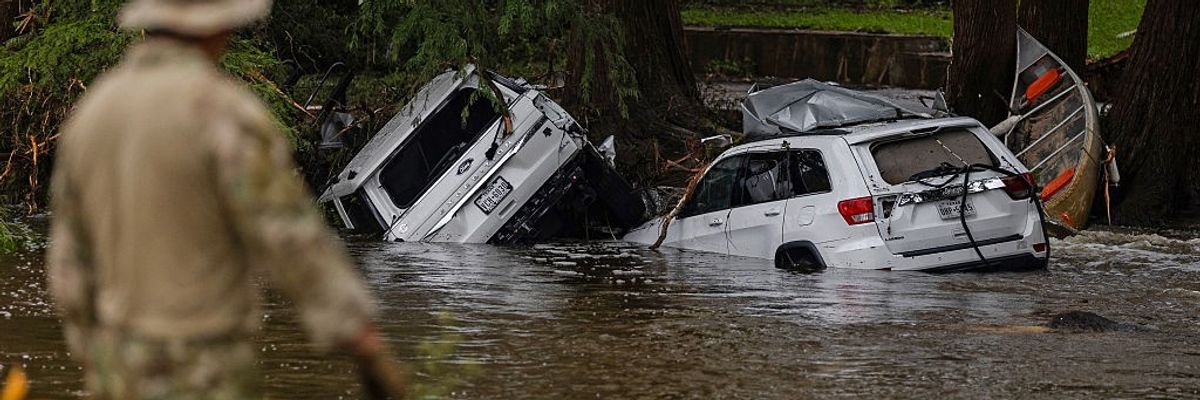A new report from a trio of prominent climate researchers has concluded that the devastating floods that hit central Texas over the last three days were made significantly worse due to the impacts of human-induced climate change.
A study published on Monday by ClimaMeter found that the floods in Texas were caused by "very exceptional meteorological conditions" that cannot be explained merely by natural variability.
The authors—Davide Faranda of the Institut Pierre-Simon Laplace in France, Mireia Ginesta of the University of Oxford in the U.K., and Tommaso Alberti of the Istituto Nazionale di Geofisica e Vulcanologia in Italy—contend that the meteorological conditions present at the start of the Texas floods on July 4 "were characterized by slightly negative surface pressure anomalies over Central Texas, with values ranging up to –2 hPa, indicating the presence of a weak low-pressure system over the region." They also found that "temperatures were significantly below the climatological average for this time of year, with anomalies reaching –5°C across much of the area affected by the flooding."
The researchers then compared how extreme weather events that occurred under meteorological conditions similar to those present during this week's floods would have manifested had they occurred in the years from 1950 until 1986, a three-decade period during where human-induced climate change had yet to cause a global surface temperature spike. They concluded that the meteorological conditions ahead of the deadly Texas floods this year were up to 7% wetter than those that had proceeded past floods in the region.
The ClimaMeter study adds heft to statements made by climate scientists over the weekend who argued that there was no question that human-induced climate change—which is driven largely by the extraction and burning of fossil fuels—had tipped the floods into historic disaster territory.
"The tragic events in Texas are exactly what we would expect in our hotter, climate-changed, world," said Bill McGuire, professor emeritus of geophysics and climate hazards at University College London. "There has been an explosion in extreme weather in recent years, including more devastating flash floods caused by slow-moving, wetter, storms, that dump exceptional amounts of rain over small areas across a short time."
As of this writing, at least 80 people have been confirmed dead as a result of the Texas floods while dozens more people have been reported as missing. The Washington Post reports that data from the Federal Emergency Management Agency's Integrated Public Alert and Warning System shows that Kerr County, Texas didn't send out an Amber Alert-style push message to local residents until Sunday, two days after the floods overwhelmed the area's rivers and creeks.




